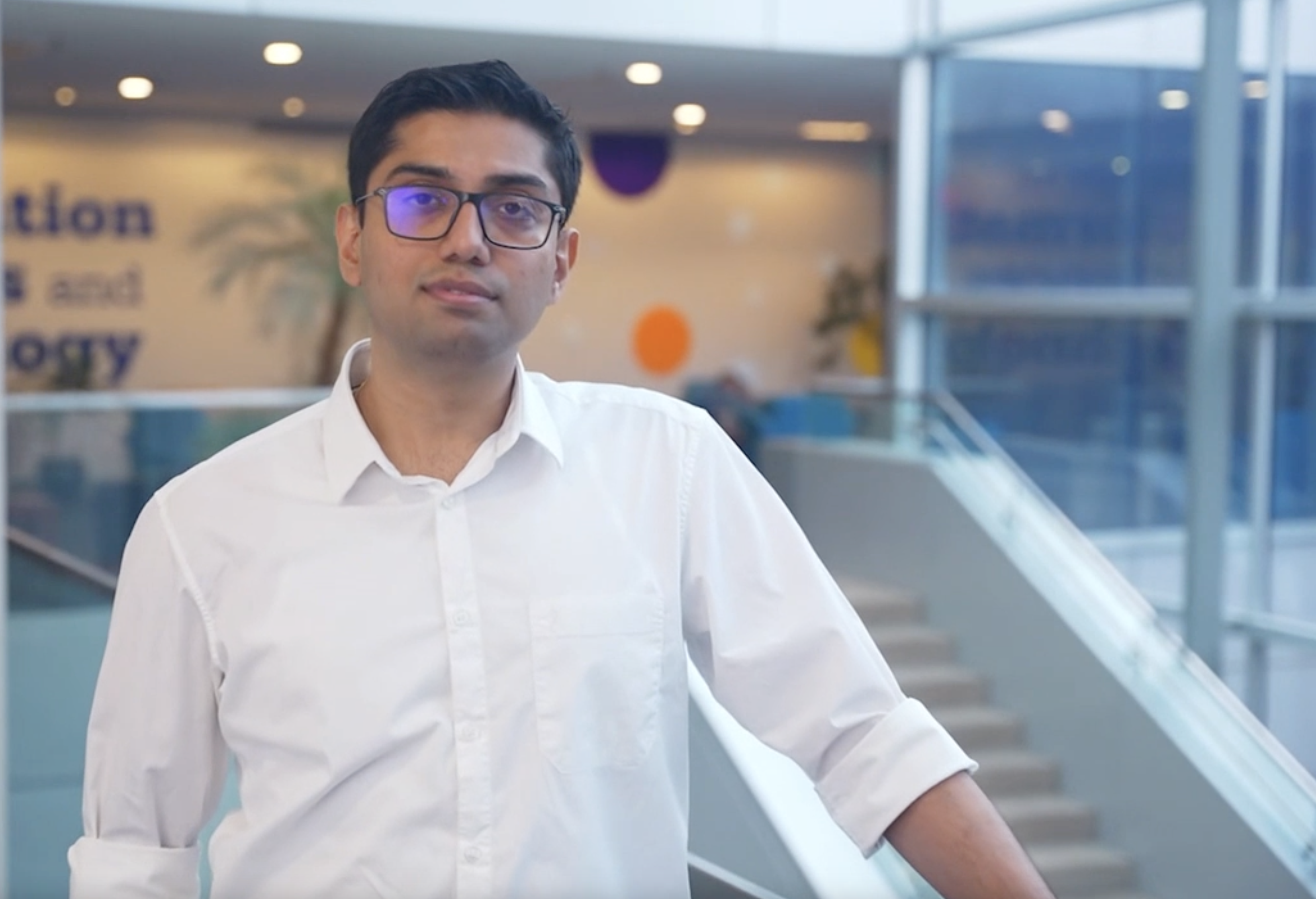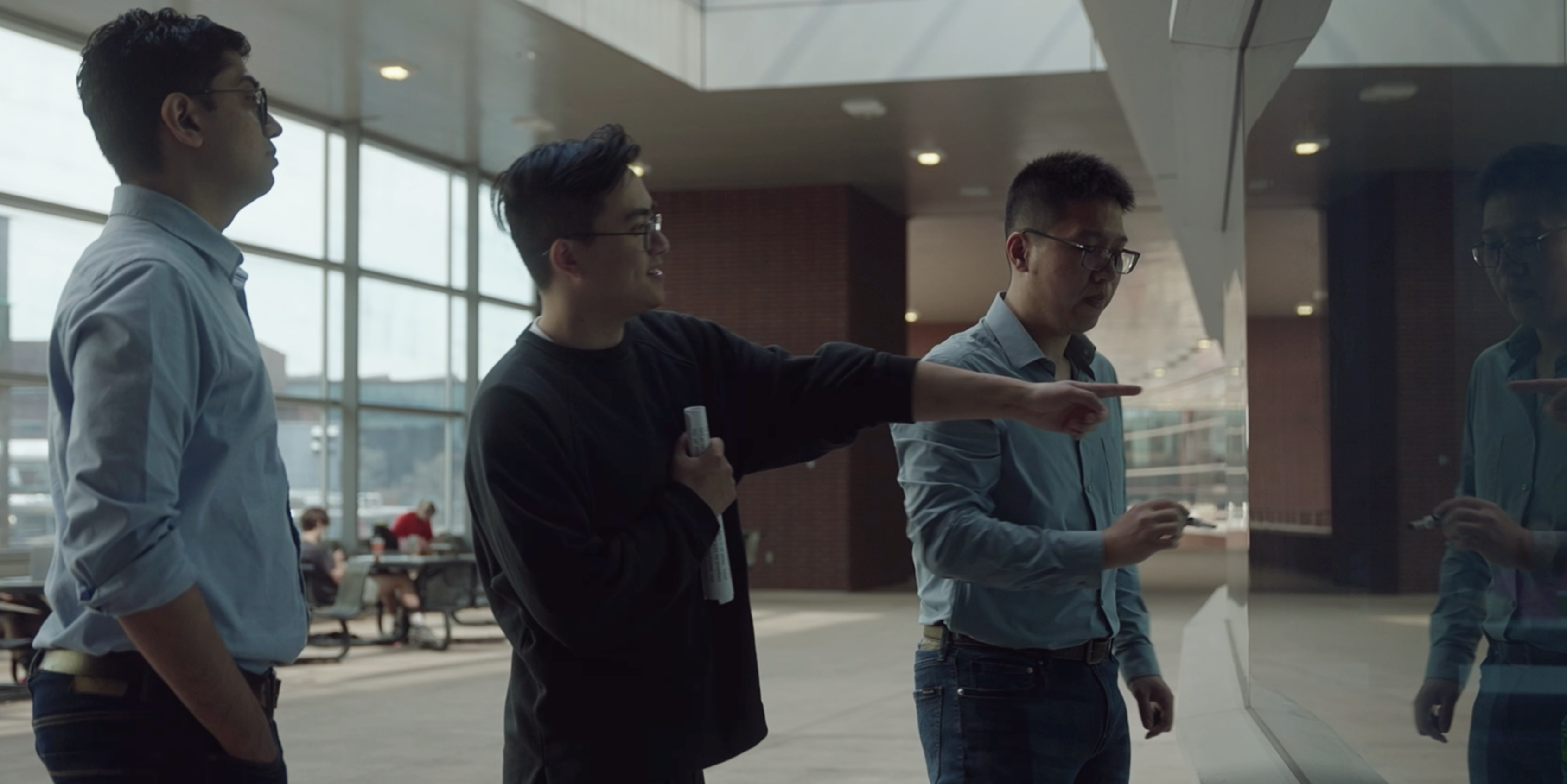
Ph.D. in computer science alumnus, Amulya Yadav
Today’s post is about Ph.D. alumnus Amulya Yadav. Dr. Yadav graduated in 2018, and joined Penn State University as the PNC Technologies Career Development Assistant Professor at the College of Information Sciences and Technology and as director of the RAISE Research Lab. He was one of the first students to work on what became a USC CAIS project (HIV prevention among youth experiencing homelessness), which means he started before CAIS was a center! Keep reading to learn more about his amazing accomplishments during his time at USC, and the impact working with CAIS had on his career.
1. Tell us a little about yourself.
I am Amulya Yadav, and I am the PNC Technologies Career Development Assistant Professor at the College of Information Sciences and Technology at Penn State University. In addition, I also direct the RAISE Research Lab @ Penn State, where my students and I make foundational contributions to the field of Responsible AI for Social Emancipation. Our goal is to advance the state-of-the-art in AI tools and algorithms to solve critical challenges faced by marginalized communities around the world, while ensuring that our algorithms do not exacerbate existing health/social/economic inequities in society. Finally, I also serve as the Associate Director at the Center for Socially Responsible Artificial Intelligence at Penn State.
Before coming to Penn State, I spent 5 wonderful years as a Ph.D. student in the Computer Science Department at USC. I was part of the Teamcore Research Group which was led by my Ph.D. advisor, Prof. Milind Tambe (who is now a professor at Harvard).
2. What factors influenced your decision to pursue your PhD at USC?
I had Ph.D. offers from Computer Science departments in Georgia Tech and UMass Amherst, both with very senior professors. As a result, I could have chosen to do my Ph.D. research in NLP ([natural language processing] if I went to Georgia Tech) or in convex optimization (if I went to UMass). On the other hand, Prof. Milind Tambe’s group at USC was doing some fascinating research through which they were building AI algorithms that could tell policemen at LAX airport when to patrol which airport terminal, and for how long. At that point of time, I had never thought that AI research could lead to such tangible tools for infrastructure security (among many other domains), and I was really fascinated by the opportunity to build something of my own (during my Ph.D. research) that I could then deploy in the real-world.
I felt that this lab-to-field research style of Prof. Tambe’s research was quite unique and exciting, and this was the primary factor behind my decision of pursuing my Ph.D. at USC.
Add to that the fact that USC was in Los Angeles, and spending 5 years in sunny California was not a bad cherry to have on top of the cake.
3. What were some of your highlights at USC?
During my time at USC, my HIV prevention project papers (which were a core component of my Ph.D. thesis) won the Best Paper Award in the MD4SG 2020 Workshop, the Pragnesh Jay Modi Best Student Paper Award in AAMAS 2016, the Most Visionary Paper Award at the IDEAS 2016 workshop (organized at AAMAS 2016), and I was also nominated for Best Paper Award at AAMAS 2017. I also won the Best Video Award at AAAI 2017. My work on HIV prevention was highlighted by Mashable.com as one of 26 incredible innovations that improved the world in 2015. Finally, but importantly, I was able to win a Best Research Assistant Award in the CS department at USC in 2016. All of these accomplishments filled me and my family with great joy!
On top of that, during my time at USC, I was fortunate enough to visit 17 countries across 5 different continents. Most of this travel was through conference travel, which is why a poor graduate student like me (at the time) was able to manage so much travel.
4. Tell us about why you decided to get involved in CAIS.
When I started my Ph.D., CAIS did not exist. I was a first year Ph.D. student under Prof. Tambe and I wanted to do something different (as compared to the topics that his other Ph.D. students were working on). To his credit, Prof. Tambe was very supportive, and he helped me set out on a journey towards finding the research problem that I wanted to work on during my Ph.D. Thus, during my first two semesters at USC, I talked to researchers from a variety of backgrounds; e.g., I spoke to economists working on climate change, to political scientists working on bilateral negotiations and treaties, etc. It was during this process of search that I happened to meet Prof. Eric Rice in the social work department, and he was looking at preventing HIV and STIs among youth experiencing homelessness. That initial meeting with Prof. Rice sparked a research collaboration between me, Prof. Rice, and Prof. Tambe, and we worked closely to develop AI driven approaches to preventing the spread of HIV among youth experiencing homelessness. And a couple of years later, Prof. Rice and Prof. Tambe decided to join forces on a deeper level to form CAIS.

5. How did your experience at CAIS contribute to making your time at USC memorable?
Working with Prof. Rice was so memorable. I still remember the Saturday that I spent with Prof. Rice and his students walking up and down Venice Beach trying to find homeless youth who we had recruited into our research pilot study (due to a coding error (my coding error), that data was lost, and thus, we had to find our study participants on Venice Beach on a Saturday). It was such a fun experience, and I’m quite sure that less than 1% of Ph.D. students in Computer Science are fortunate enough to have such experiences during their Ph.D. (where they are far removed from their computers, yet they are doing research). Prof. Rice made it possible for me, CAIS made it possible for me.
6. Tell us about your plans for the future.
I am now a professor at Penn State, and I direct the RAISE Research Lab. My students and I make foundational contributions to the field of Responsible AI for Social Emancipation. Our goal is to advance the state-of-the-art in AI tools and algorithms to solve critical challenges faced by marginalized communities around the world, while ensuring that our algorithms do not exacerbate existing health/social/economic inequities in society. Very recently, our new NLP research was deployed full-time by Jacaranda Health, an NGO in Kenya which works with pregnant women and new mothers in Kenya. Just now, we are starting a collaboration with a non-profit organization in the Philippines, which works with children who experience online sexual abuse and exploitation, and we are going to try and build useful AI tools that can improve their operational efficiency. Moving forward, I want to leverage the RAISE Lab’s foundations to try to work with as many non-profits as I can, to help as many people as I can.
7. How did CAIS help you in your career?
In addition to giving me a platform to project my research in front of the broader societal consciousness, my experiences at CAIS really helped me hone my skillsets as an interdisciplinary researcher. Learning how to communicate your research to your peers in your field is an important skill to learn for any Ph.D. student. But CAIS gave me the superpower of being able to communicate my research with peers who are not from my area of expertise. Doing interdisciplinary research at CAIS forced me to develop skills that would enable me to explain my CS research to collaborators from social work, while at the same time, understanding the research that my fellow social work collaborating researchers were doing.
8. What advice would you offer to someone considering pursuing a PhD in computer science?
A Ph.D. is an interesting but fun journey, and therefore, I don’t think that the things that worked for me will work for anyone else. It is important for every Ph.D. student to chart out their own course, and everyone does (even though many Ph.D. students doubt themselves at the beginning of their PhD programs). Thus, every Ph.D. student should remember to work hard, know that you are good enough (you did not get into USC by luck, the only reason you are here is that you are good enough), but also make sure to find time for friends and family.



